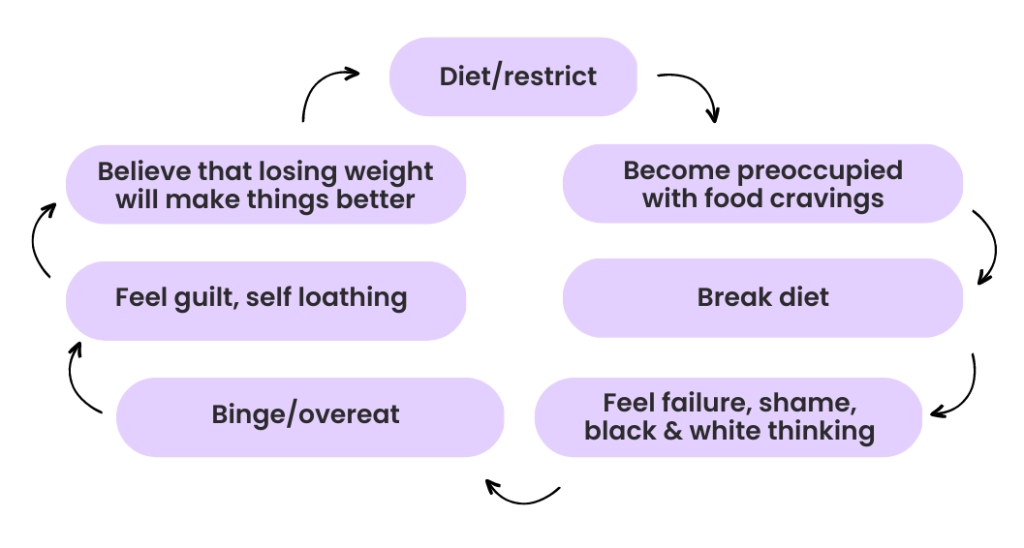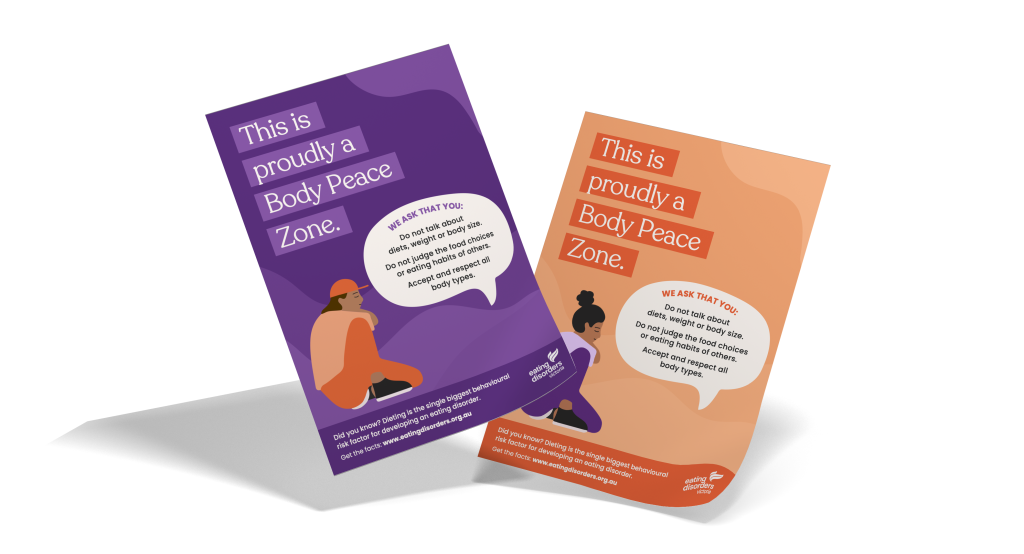Here are just some of the reasons why here at EDV, we believe that every day should be No Diet Day.
Dieting contributes to a negative relationship with food and eating.
The strict, restrictive and often unsustainable nature of many diets can leave dieters feeling constantly hungry and deprived. Dieters often ignore this hunger for a short time but such deprivation can eventually lead to powerful food cravings and over-compensatory behaviour such as bingeing.
Dieting can lead to feelings of guilt over ‘lack of self-control’, low self-esteem, a poor body image and obsessive thoughts and behaviours surrounding food. In addition, people who diet frequently are more likely to experience depression.
Dieting has negative physical effects.
Diets disconnect people from their natural bodily responses through imposed food related rules and restrictions, which may overlook hunger, physical activity and a person’s individual nutritional requirements.
This can result in physical consequences such as:
- slowing of the metabolism
- reduction in the ability to feel hungry or full, making it easier to confuse hunger and emotional needs
- headaches
- constipation and/or diarrhoea
- insomnia and fatigue
- reduction of muscle tissue and bone density
Dieting can lead to a diet/binge cycle of food deprivation.
When a person diets, they often get stuck in a cycle of food deprivation, feelings of extreme hunger, consequent binging and feelings of shame. The cycle can be very difficult to break and have a dramatic impact on the health and wellbeing of a person.

We know that diets don’t even work!
The restrictive nature of dieting does not work. In fact, research shows that 95% of people who diet regain the weight and more in one to five years.
Weight-loss and fad diets involve restricting food intake to levels that often leave a person constantly hungry and in some cases, lacking the necessary nutrients they need to maintain physical health and energy levels. A reduction in food intake also causes a famine response in the body, which slows down our metabolism (the amount of energy we use) making it more difficult to lose weight.

